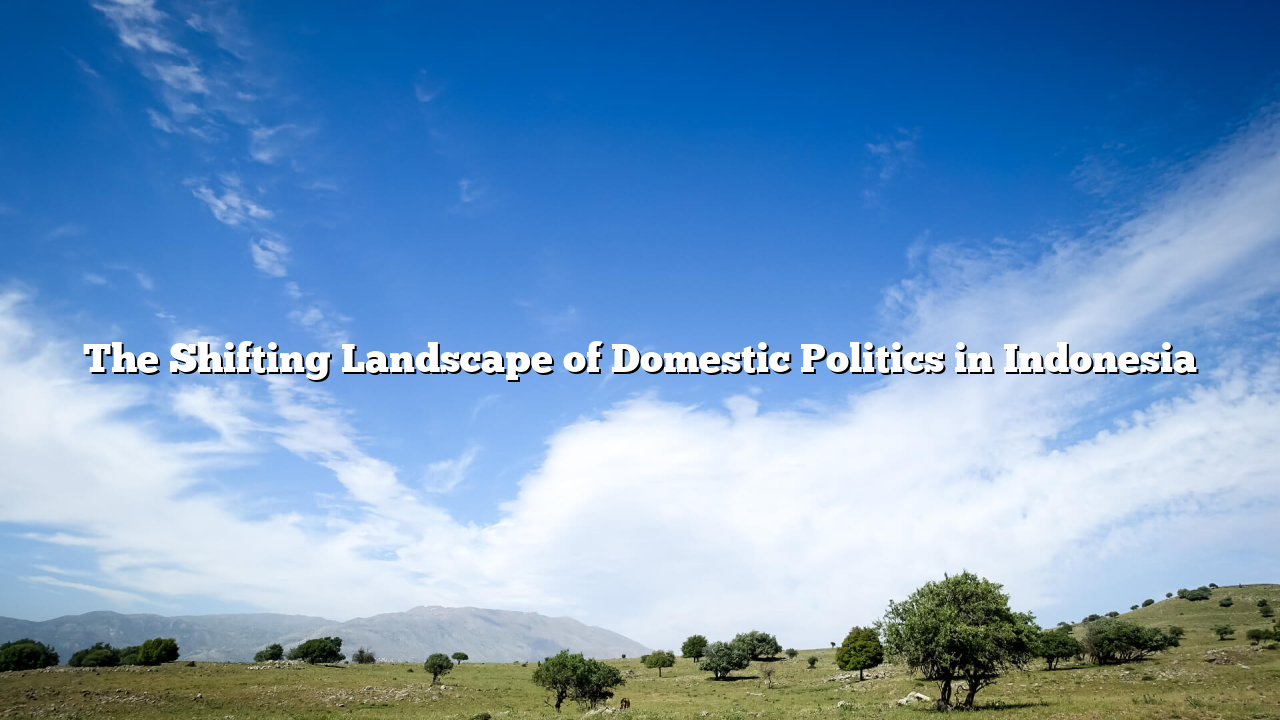In recent years, Indonesia’s domestic political scene has undergone significant transformations, reflecting both the country’s evolving democratic maturity and the complex challenges it faces. As the world’s third-largest democracy, Indonesia has long been celebrated Pattimura4d for its peaceful transitions of power, yet the shifting dynamics between political parties, the rise of populism, and the impact of digital media have introduced new uncertainties into its political climate.
One of the most notable changes is the blurring of ideological lines among Indonesia’s major political parties. Once firmly divided between nationalist and religious platforms, parties have increasingly adopted pragmatic approaches, prioritizing coalition-building over rigid ideological consistency. This tendency, while helping to stabilize governance by fostering broad alliances, has also led to criticisms of opportunism. Political observers note that the electorate often struggles to distinguish clear policy differences, making personality and charisma more decisive factors than party programs.
The role of social media has also been transformative. Platforms such as Instagram, TikTok, and X (formerly Twitter) have become primary arenas for political discourse, allowing candidates to bypass traditional media and speak directly to voters. While this has expanded participation and given voice to previously marginalized groups, it has also made the political space more vulnerable to misinformation and divisive narratives. The 2024 general election illustrated this dual reality, with online campaigns mobilizing millions while simultaneously sparking concerns about digital manipulation.
At the heart of domestic political debates lies the issue of economic equity. Indonesia’s impressive economic growth over the past decade has lifted millions out of poverty, but wealth distribution remains uneven. Political parties frequently promise reforms to address inequality, from expanding social assistance programs to improving access to education and healthcare. Yet, the implementation of such policies often encounters bureaucratic inefficiencies and political compromises, leading to public frustration.
Another contentious area is governance and corruption. While anti-corruption measures have been a consistent public demand, high-profile scandals continue to emerge, testing public trust in institutions. The Corruption Eradication Commission (KPK), once hailed as one of the nation’s most trusted bodies, has faced both praise and criticism for its handling of cases involving political elites. Debates over the KPK’s authority and independence underscore the ongoing tension between reformist and entrenched political interests.
Regional autonomy also remains a defining feature of Indonesia’s domestic politics. Decentralization, introduced after the fall of the New Order regime, has empowered local governments, fostering innovation in some provinces while creating governance challenges in others. The diversity of policy outcomes across regions reflects Indonesia’s vast geographic and cultural landscape but also complicates the creation of cohesive national strategies.
Looking ahead, Indonesia’s domestic political trajectory will be shaped by how effectively its leaders balance economic development, democratic freedoms, and national unity. With a youthful population increasingly aware of global trends, demands for transparency, inclusivity, and sustainable growth are likely to intensify. Political actors who can address these aspirations while navigating the country’s deep diversity may find themselves well-positioned to lead in the coming decade.
In the end, Indonesia’s political future depends not only on its leaders but also on the engagement of its citizens. As the nation continues to evolve, the resilience of its democratic institutions—and the capacity of its people to hold them accountable—will determine whether the promises of reform can translate into lasting progress.
